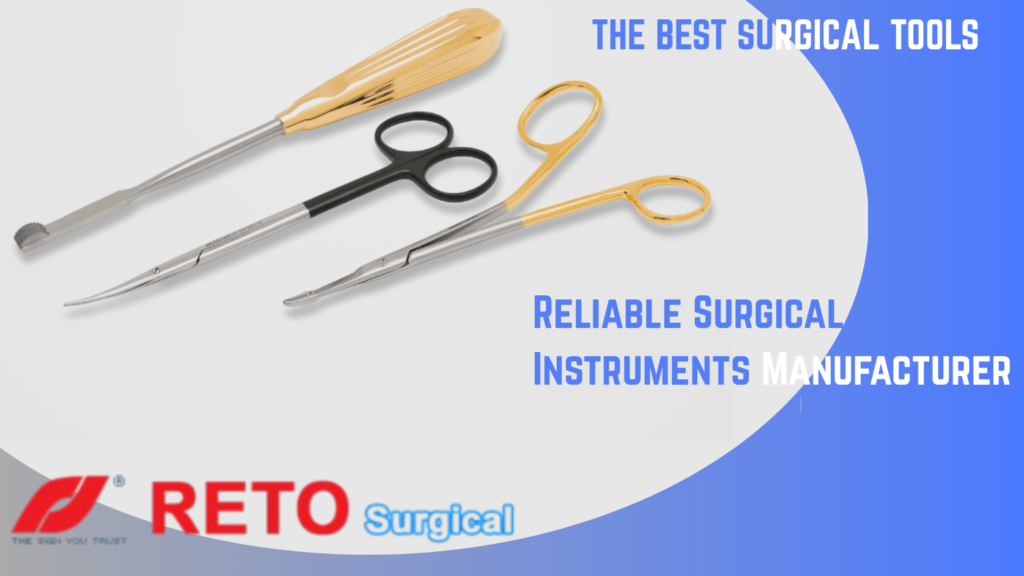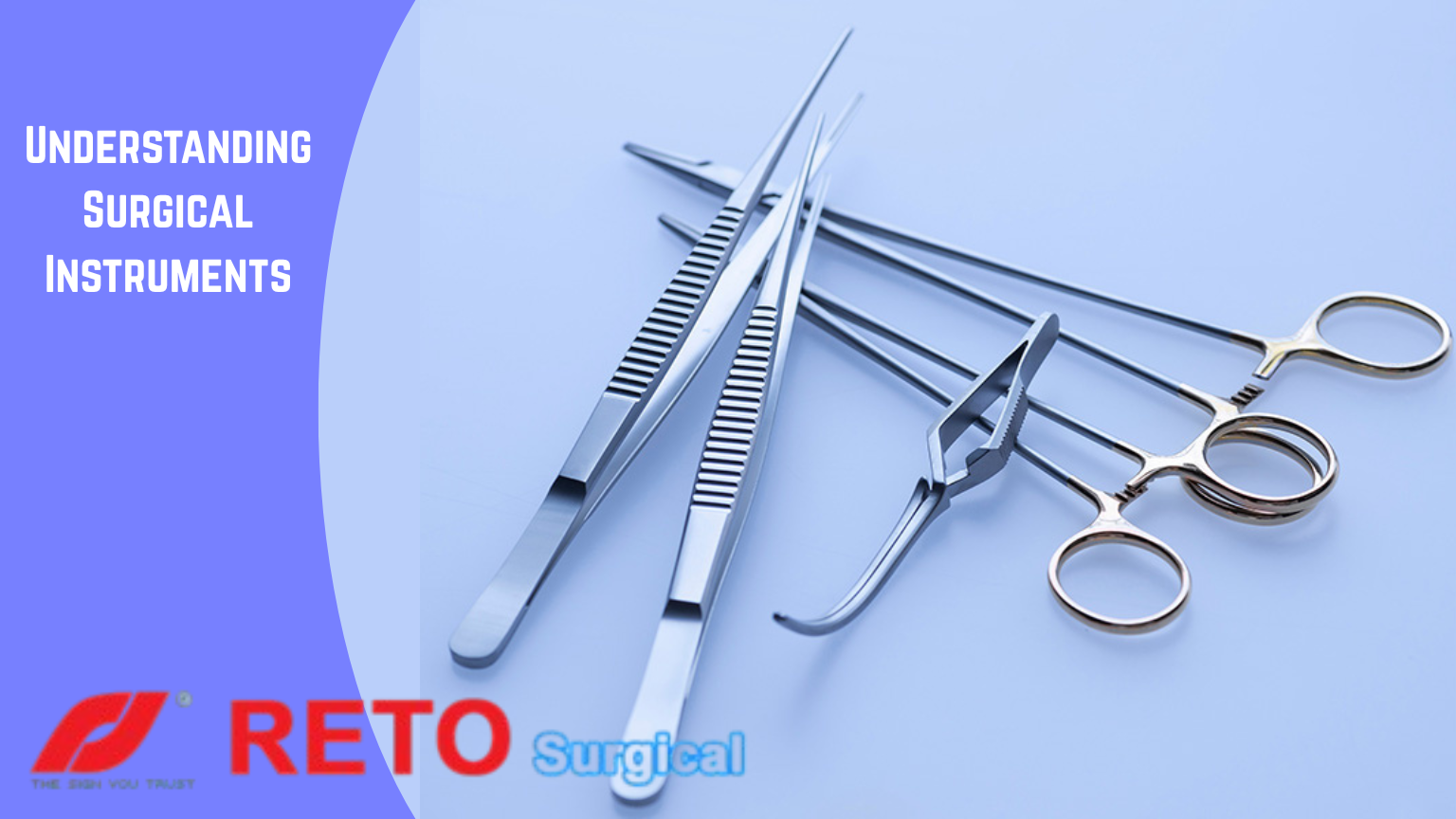All About the Reliable Surgical Instruments Manufacturer
How to Find Reliable Surgical Instruments Manufacturer
Selecting a reliable producer of surgical instruments is important to guarantee patient safety, precision, and quality. Consider producers with a history of success, and global standard compliance. Seek out high-quality materials, quality control processes, and open production processes.
You can learn about a company’s dependability through reading reviews, seeing customer testimonials, and asking for product samples. Going to medical trade shows or establishing connections with healthcare providers can lead to authentic referrals. Choose manufacturers who offer a consistent supply, timely customer support, and customization. Good support and high-quality products are to be expected when a long-term connection is established with a reputable manufacturer.

Understanding Surgical Instruments
Surgeons utilise surgical instruments, which are specialized devices, to perform procedures safely, effectively, and accurately. To cut, dissect, grasp, hold, retract, or repair tissues, each instrument serves a specific purpose. Common types include retractors, clamps, forceps, scalpels, and scissors. For strength and resistance to corrosion, stainless steel is used in their manufacturing. Designs of these instruments reduce the risk of injury during procedures through facilitation of careful handling of delicate tissues. Personnel working in the operating room should be aware of how to use and handle surgical instruments in order to promote effective surgical procedures and prevent infection or complications.
Considerations For Selecting Surgical Instruments
Keep the following things in mind to make sure you’re spending money on the best surgical tools:
Material Quality: Choose instruments composed of premium titanium or stainless steel. Durability, resistance to corrosion, and ease of sterilizing are ensured by these materials.
Ergonomics: Medical professionals, including surgeons, spend a lot of time with instruments. Ergonomic tools increase handling precision and reduce fatigue.
Vendor Reputation: Check reviews, customer recommendations, and years of market experience to learn more about a vendor’s reputation.
After-Sales Service: Purchasing surgical tools requires dependable after-sales service, which includes warranties, repairs, and replacements. Select vendors who place a high value on client pleasure.
Customization: For specialist procedures, special tools could be needed. Choose manufacturers who can provide solutions that are specifically tailored to your demands.
Tips for Maintaining Surgical Instruments
These maintenance guidelines will help your surgical equipment last longer and function better:
Immediate Rinsing After Use
To get rid of blood and tissue, rinse the equipment with cold or lukewarm water.
A protein may coagulate and adhere if the water is too hot.
Manual Cleaning
Make use of an enzymatic detergent that is pH-neutral and a gentle brush.
Pay close attention to the joints, serrations, and hinges.
Ultrasonic Cleaning
Instruments should be placed in an open position.
Make sure the cleaner is fully exposed to ultrasonic waves and avoid overloading it.
Proper Drying
After cleaning, completely dry to avoid rusting.
Make use of medical-grade compressed air or lint-free towels.
Lubrication
After washing but before sterilizing, use a water-based surgical instrument lubricant, also known as “milk.”
Helps joints and keeps movement smooth.
Inspection
Check for wear, misalignment, rust, and cracks.
Test functionality – the clamps should line up, and the scissors should cut neatly.
Sterilization
Follow manufacturer guidelines.
To avoid electrolysis, do not combine stainless steel with other metals.
Proper Storage
Store in a clean, dry environment.
To prevent damage, use trays or protective cases.
Regular Maintenance Schedule
Establish a routine for preventive maintenance.
Monitor repairs and inspections.
Staff Training
Make sure employees are instructed on safe handling, cleaning, and storage techniques.
Conclusion
In summary, finding the right producer of surgical equipment requires serious research, careful consideration, and focus on quality, certification, and reputation. Look for manufacturers who have open communication about their quality assurance process and follow internationally recognized standards such as ISO and CE certifications. Referrals from clients, reviews, and experience in the industry are also very important signals of credibility. To ensure they are meeting your unique needs, it is important to assess their responsiveness, post-purchase support, and flexibility. Sampling or inspecting their facility can give further confidence. Collaboration with a stable manufacturer over an extended period of time enhances patient safety and operational efficiency in addition to providing assurance of consistent product quality. Make a well-informed decision because the correct manufacturer will be a big assistance to your medical practice or healthcare facility.
FAQ’s
Q1. How do you inspect surgical instruments?
Serrations, crevices, and box locks should all be carefully inspected for cleanliness. It is important to check the sharpness of cutting-edged tools like scissors, rongeurs, chisels, curettes, etc. No chips, dents, or dull spots should be present.
Q2. When surgical instruments Manufacturer are made, who decides their grade?
The process of manufacturing instruments involves several steps, and each surgical instruments manufacturer sets their own standards for quality. One important piece of information required in the surgical instrument selection process is the manufacturer’s dedication to quality within their own processes and what it entails for your facility.
Q3. Which surgeon is in the most demand?
Orthopedic, cardiothoracic, and neurosurgeons are three of the most sought-after surgical specialties in the medical field; they are usually associated with coveted residency positions and lucrative pay.
Q4. At what point should surgical instruments be evaluated?
All equipment should be inspected after cleaning or packed for later use. The significance of assessing each tool cannot be emphasised.

